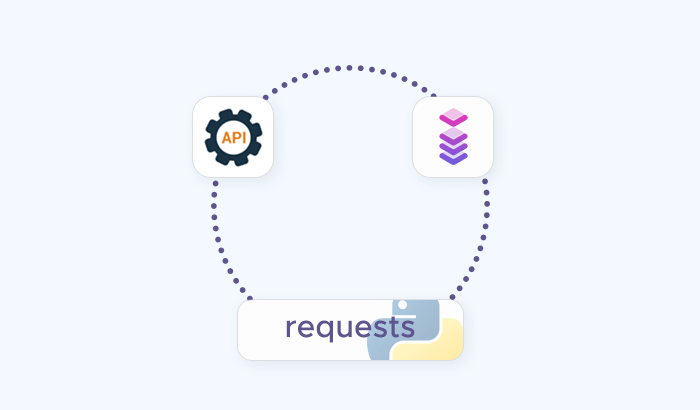

Proxy servers are intermediaries that act as a gateway between your device and the internet – and the benefits of proxy servers are numerous: They can hide or change your IP address, filter or modify your web traffic, and provide various levels of functionality, security, and privacy. In this article, you will learn what proxy servers are, how they work, and proxy server advantages and disadvantages for online security and privacy. You will also learn how to choose and set up a proxy server for your needs and preferences.
What are proxy servers?
Proxy servers are intermediaries that act as a gateway between your device and the internet. They can hide or change your IP address, filter or modify your web traffic, and provide various levels of functionality, security, and privacy. There are different types of proxy servers, each with its own advantages and disadvantages. In this chapter, we will focus on three main types: residential, datacenter, and mobile proxy servers.
What are residential proxy servers?
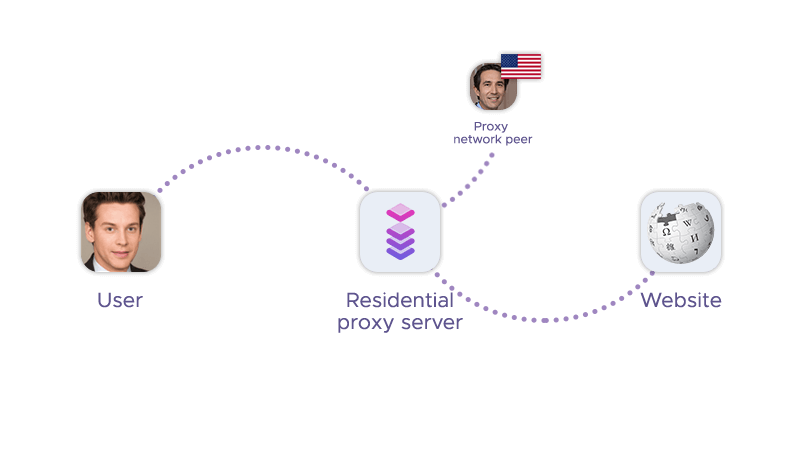
Residential proxy servers use IP addresses that belong to real devices connected to residential internet service providers (ISPs). These devices can be computers, smartphones, tablets, or even smart TVs. Residential proxies are ideal for tasks that require high anonymity and geo-targeting, such as web scraping, accessing geo-restricted content, or performing market research. Residential proxies are less likely to be detected or blocked by websites because they appear as regular users. However, residential proxies can also be slow, unstable, or expensive depending on the provider and the quality of the network.
What are datacenter proxy servers?
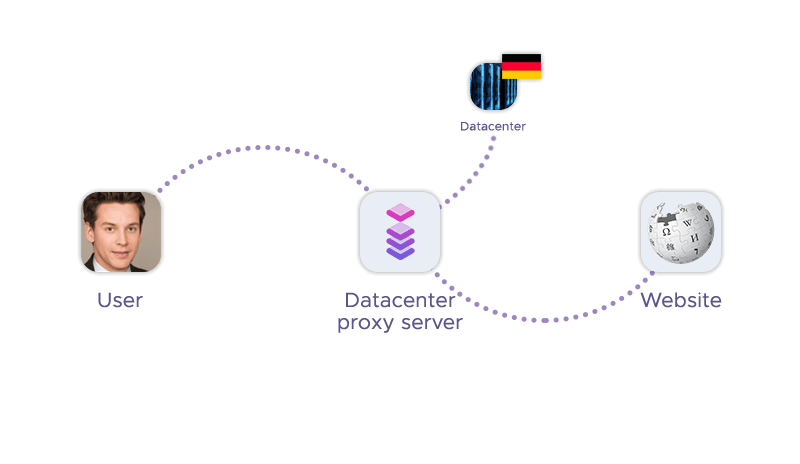
Datacenter proxy servers use IP addresses that belong to data centers instead of ISPs. These IP addresses are not associated with any physical location or device. Datacenter proxies are perfect for tasks that require speed, performance, and reliability, such as web browsing, gaming, or streaming. Datacenter proxies are cheaper and faster than residential proxies because they have higher bandwidth and lower latency. However, datacenter proxies can also be less secure, less anonymous, or more prone to being blocked by websites because they are easier to identify and track.
What are mobile proxy servers?
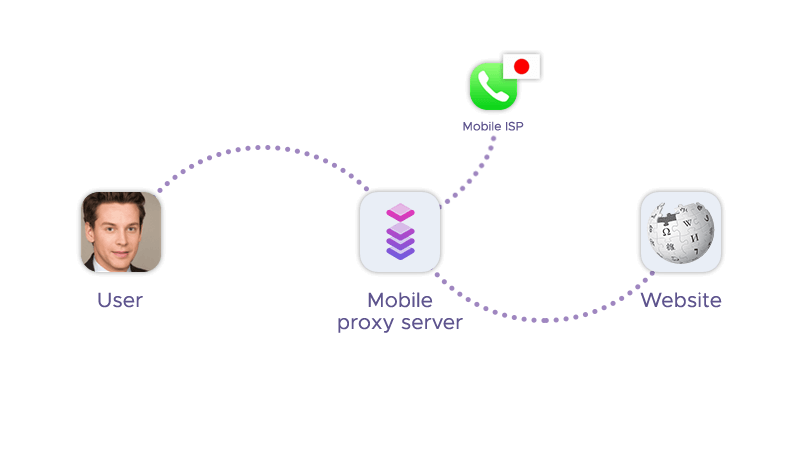
Mobile proxy servers use IP addresses that belong to mobile devices connected to cellular networks. These devices can be smartphones, tablets, or routers. Mobile proxies are similar to residential proxies in terms of anonymity and geo-targeting, but they have some unique features and benefits. Mobile proxies can access mobile-specific content and services, such as apps, games, or social media platforms. Mobile proxies can also bypass firewalls and censorship more effectively than other types of proxies because they use dynamic IP addresses that change frequently. However, mobile proxies can also be costly, limited, or unstable depending on the provider and the quality of the network.
Benefits of proxy servers
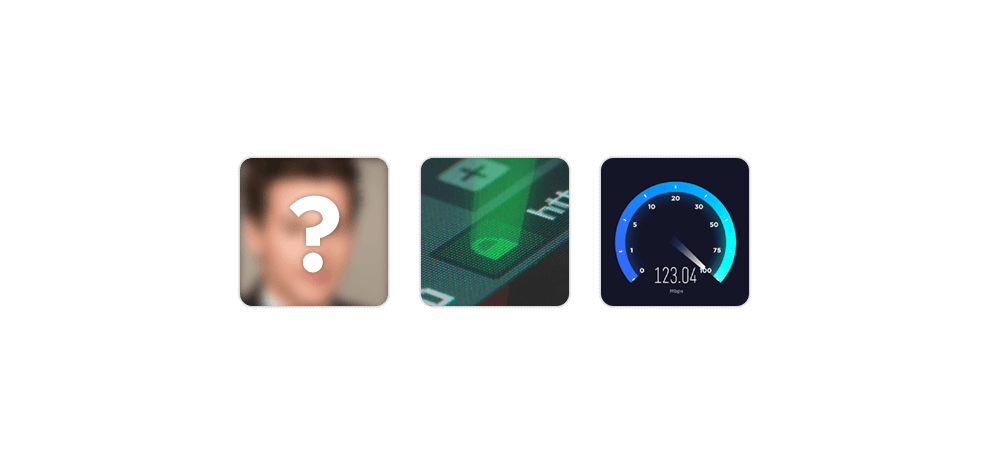
Let’s analyze three main proxy server benefits: anonymity, security, and performance.
Anonymity: One of the main advantages of proxy servers is that they can hide your IP address from the websites you visit. Your IP address is a unique identifier that reveals your location, device, and network information. By hiding your IP address, proxy servers can protect your identity and prevent websites from tracking your online activities. This can also help you bypass geo-restrictions and access content that is not available in your region.
Security: Another example of proxy server advantages is that they can filter or modify your web traffic according to your preferences. For example, you can use a proxy server to block unwanted ads, pop-ups, cookies, or malware from reaching your device. You can also use a proxy server to change the content or format of the web pages you visit, such as translating them to a different language, compressing them to save bandwidth, or adding extra features or functions.
Performance: A third case of advantages of proxy servers is that they can improve your internet speed and performance by caching frequently accessed web pages and files. Caching is a process of storing copies of web resources on a proxy server so that they can be delivered faster to your device when you request them again. This can reduce the load on the original server and save network resources and time.
Disadvantages of proxy servers
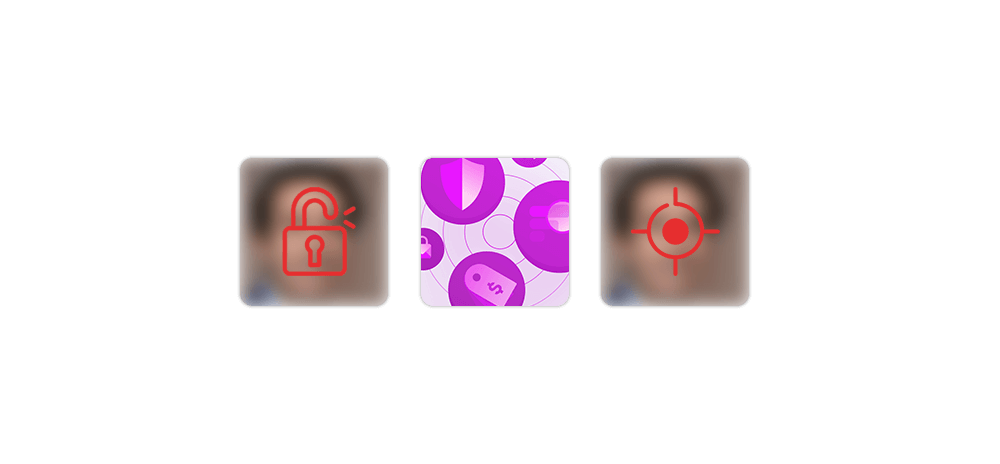
Some proxy servers also have some drawbacks that you should be aware of before using them. Let’s discuss the disadvantages that proxy servers can have for online security and privacy.
Lack of encryption: One of the main disadvantages of proxy servers is that they may not encrypt your data or protect you from hackers, viruses, or malware. Encryption is a process of converting your data into a code that only you and the intended recipient can understand. By encrypting your data, you can prevent anyone from intercepting, reading, or modifying it. However, not all proxy servers offer encryption, and some may even decrypt your data before sending it to the website. This can expose your data to various risks, such as identity theft, data breach, or cyberattack.
Limited usability: Another disadvantage of proxy servers is that they may not support all types of web protocols or applications, such as streaming, gaming, or torrenting. Web protocols are rules that define how data is transferred and communicated over the internet. Applications are software programs that use web protocols to perform specific functions or tasks. Some web protocols or applications may not work well with proxy servers because they require direct or secure connections, high bandwidth, or low latency. This can affect your online experience and functionality.
Security concerns: A common disadvantage of free proxy servers is that they may compromise your privacy by logging or leaking your browsing history or personal information. Logging is a process of recording your online activities and storing them on a server. Leaking is a process of disclosing your online activities to unauthorized parties. Some proxy servers may log or leak your browsing history or personal information for various reasons, such as marketing, analytics, or legal compliance. This can violate your privacy and expose you to unwanted ads, spam, or surveillance.
How to choose a proxy server?
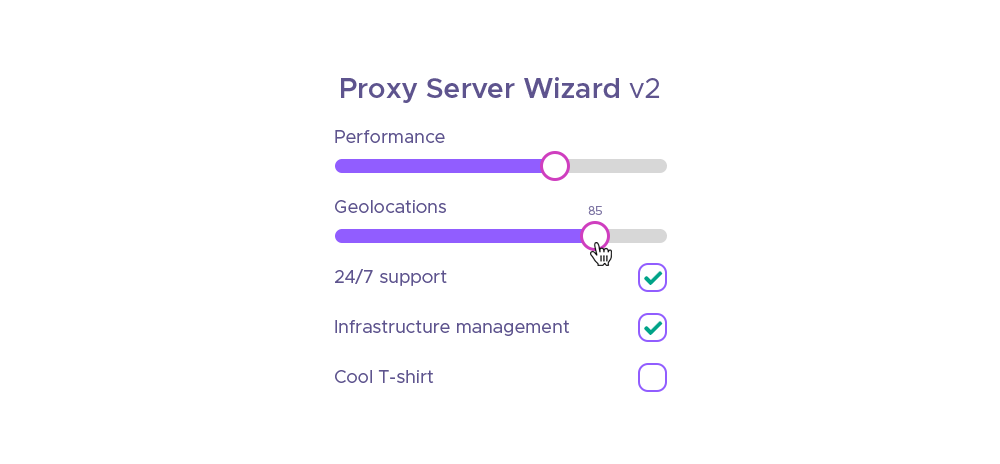
Not all proxy servers are created equal, and some may suit your needs and preferences better than others. In this chapter, we will provide some practical advice on how to choose a proxy server for your online activities.
There are several factors that you should consider when choosing a proxy server, such as the type, location, security, and privacy of the proxy server. Each factor has its own implications and trade-offs that you should weigh carefully before making a decision.
Supported protocols
There are different types of proxy servers, such as HTTP, HTTPS, SOCKS, CGI, or reverse proxies, that have different functions and features. You should choose the type of proxy server that matches your intended use case and supports the web protocols or applications that you want to use. For example, if you want to use a proxy server for web browsing, you may prefer an HTTP or HTTPS proxy that can handle web requests and responses. If you want to use a proxy server for gaming or torrenting, you may prefer a SOCKS proxy that can handle any type of traffic and application.
Infatica’s proxies offer popular support for popular protocols like HTTP and SOCKS5.
Proxy server locations
The location of the proxy server affects the speed and latency of your internet connection, as well as the availability of geo-restricted or censored content. You should choose a proxy server that is close to your physical location or the location of the website that you want to access. For example, if you want to use a proxy server for streaming Netflix US content from Finland, you may want to choose a proxy server that is located in the US or nearby countries. If you want to use a proxy server for accessing censored websites from China, you may want to choose a proxy server that is located in a country that does not censor the internet.
Infatica’s proxy servers offer more than 150 geolocations across North America, South America, Europe, Africa, and Asia.
Proxy server security and privacy
The security and privacy of the proxy server depend on the encryption level, authentication method, logging policy, and reputation of the proxy server provider. You should choose a proxy server that offers strong encryption, secure authentication, no-logs policy, and positive reviews from other users. For example, if you want to use a proxy server for online banking or shopping, you may want to choose an HTTPS or SOCKS proxy that encrypts your data and requires a username and password to access. If you want to use a proxy server for anonymous browsing or research, you may want to choose a residential or mobile proxy that does not log or leak your browsing history or personal information.
Infatica’s proxy servers offer industry-grade encryption mechanisms to safeguard your data.
Conclusion
In this article, you have learned about proxy servers and their role in online security and privacy. You have learned that proxy servers can hide your IP address, filter or modify your web traffic, and improve your internet speed and performance. You have also learned that proxy servers can have some drawbacks, such as not encrypting your data, not supporting all web protocols or applications, and compromising your privacy. You have also learned how to choose and set up a proxy server for your online activities. We hope that this article has helped you understand proxy servers better and make informed decisions about using them.






